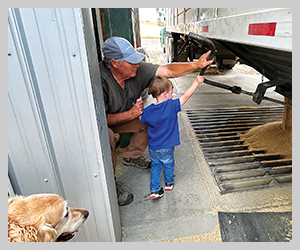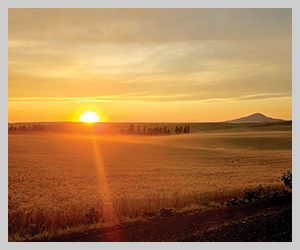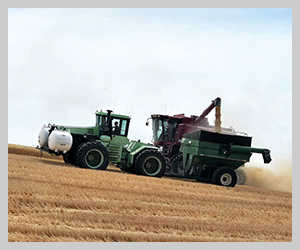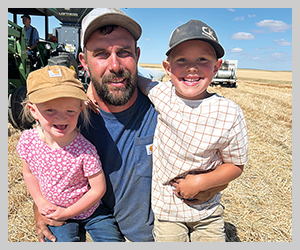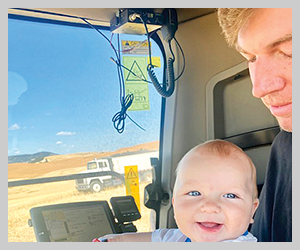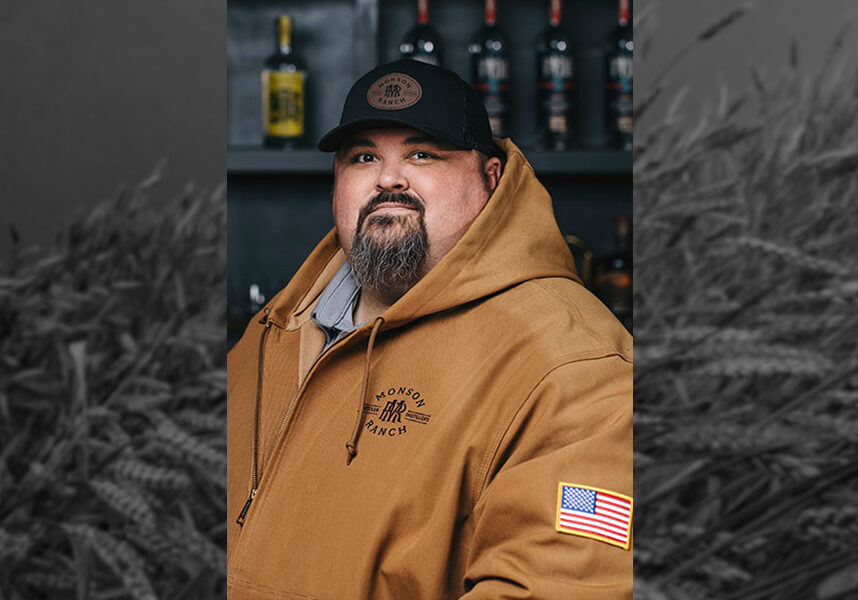
Making spirits from Washington wheat and agricultural products is a unique labor of love. It involves the careful cultivation of soft winter wheat, the creation of custom stills, a meticulous distillation process, and the infusion of the spirits with locally sourced botanicals and fruits. This process, which can take years, is a testament to the dedication and patience of the distillers, not to mention the additional efforts required for marketing and distribution once the product has aged.
Brian Morton, master distiller with Monson Ranch Distillers of Prosser, Wash., is in it for the long haul. His distilling career spans two decades, and he has consulted with over 20 national alcohol distillation companies to make spirits.
Morton and the Monson family partnered to set up a local distribution operation. The Monson’s own and operate various farming and vineyard properties in the Yakima Valley. Both families are active in daily operations. Morton’s family is also involved in the business, with two of his six children working at the distillery and winery.
Morton said distilling liquor had not been allowed in Washington since prohibition ended in 1933. Other states allowed spirit distillation, but Washington was a holdout. In the early 2000s, when he started making spirits, he was one of the first in the state. Now, there are more than 3,200 distillers nationwide.
Soft winter wheat is the base for the company’s vodka and gin. Morton said to make gin, they first make vodka and then add botanicals to obtain the gin flavor. They also make wheat bourbon, starting with 51% corn and a wheat infusion.
“Wheat is the primary flavoring grain in our bourbon: 51% corn, 4% barley, and 45% wheat,” Morton explained.
Another product they make is rye whiskey, which Morton said is funny because in Yakima Valley, around the Monson family farm in the Rattlesnake Hills, rye is considered a noxious weed, especially in wheat.
“It’s like Superman and kryptonite; most kids on the farm in the valley are paid to pull the rye,” he said.
The Monson family grows dryland wheat, which Morton said produces a different profile than irrigated wheat, “every year is a little different,” much like grapes, which have distinct flavor profiles each year.
The Monson family likes to farm its own products, called “full integration.” They grow wheat, grapes, cherries, apples, and more. They also sell custom services for people who want to buy agricultural products and produce their brands.
The wheat fields in the Rattlesnake Hills go from Sunnyside to Benton City, Wash. The robust wine industry in the region is lined with vineyards and tasting rooms. Morton said the area wasn’t irrigated by farmers on the lower part of the Hills until 2017. He said the top part of the Hills will likely never have irrigation.
According to a family spokesperson, “The Rattlesnake Hills are the largest, treeless mountain in the world. Not much is irrigated; our wheat grows on the farms from a six-generation farm, coming from multiple farming families.”
Looking at the Rattlesnake Hills from Horse Heaven Hills, across the Yakima Valley, the rolling hills of dryland farming take on a pinkish hue compared to the lush, green valley, which is irrigated.
“In spring and late fall, we can get dry lightning, and those are the hills that usually burn,” Morton said, reflecting on the dryness of the semiarid desert.
Monson Ranch Distillers works side-by-side with farmers to select the grain for their liquor. Morton said they use about 1,000 acres of wheat for Monson Ranch Distillers and 500 acres of rye for the whisky.
“We have some of the best agriculture in the world right here,” he said.
The Monson family deeply appreciates their land and tells their stories through their farming practices. Their commitment to farming for the next generation is evident in terms of the quality of their products. Their dedication to showcasing the high quality of their spirits ensures that each bottle is a testament to the rich agricultural region of the Yakima Valley.
The area is highly ag-centric, and Morton said this farming immersion is the reason for schools, restaurants, farms, and jobs.
Additionally, the new Monson Ranch distillation location and tasting room in Prosser had their grand opening this spring. Their building was used for civil defense after WWII. The building was made from cinder block and red brick from a local quarry. They also have old-growth wood from Weyerhaeuser on the tasting room’s walls. Another story they tell is that over the years, the building was used to build floats for the many parades in the region. The prom kings and queens signed their names on the floors and are now revisiting the facility to reminisce.
Both the tasting room and website focus on American heritage and family involvement. Tourism is important to Prosser, and there are 30 wineries in the area. The distillery is a unique addition to the wineries.
Both Morton and the Monson family are looking forward to expanding their line of spirits, with a focus on quality and the rich agricultural region of the Yakima Valley.
For more information, visit monsonranchdistillers.com.






